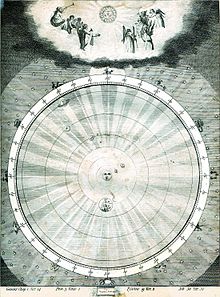
The musica universalis (literally universal music), also called music of the spheres or harmony of the spheres, is a philosophical concept that regards proportions in the movements of celestial bodies—the Sun, Moon, and planets—as a form of music. The theory, originating in ancient Greece, was a tenet of Pythagoreanism, and was later developed by 16th-century astronomer Johannes Kepler. Kepler did not believe this "music" to be audible, but felt that it could nevertheless be heard by the soul. The idea continued to appeal to scholars until the end of the Renaissance, influencing many schools of thought, including humanism.